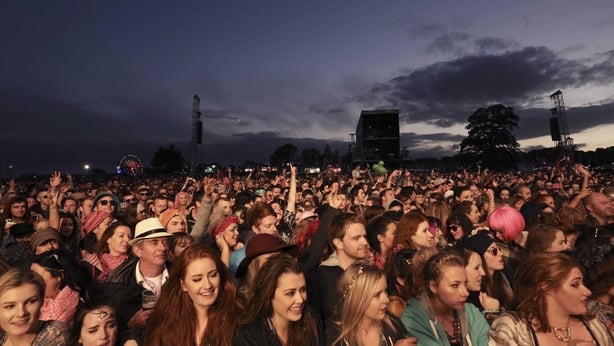The Department of Health has been notified of 1,508 new cases of Covid-19.
The number of patients in hospital with Covid-19 has fallen slightly. There are 206 people being treated in hospital, down 11 on yesterday.
Of those in hospital, there are 33 being treated in intensive care units, down one on yesterday.
Chief Medical Officer Dr Tony Holohan said: "Covid-19 is circulating to a significant degree in the community, but the public's ongoing adherence to public health advice, the high levels of vaccine uptake, and the ongoing community engagement with testing centres around the country is encouraging.
"We continue to see good levels of cooperation with contact tracing and we must maintain this in order to break chains of transmission and keep our families and communities safe."
Dr Holohan said yesterday that over 20,000 cases have been reported over the past two weeks.
He said 17% of these cases were in people who were fully vaccinated, which he said is "entirely in keeping with what we expect as an increasing proportion of our population get vaccinated".
Dr Holohan said vaccines are effective and while they will not prevent every case "they provide excellent protection against severe disease and significantly reduce the risk of hospitalisation".
As of this morning, the hospital with the largest number of confirmed Covid-19 patients is University Hospital Limerick which has 18 cases.
Sligo University Hospital has 17 cases, while St James's Hospital and Tallaght Hospital in Dublin each have 15 cases.
The latest HSE operational report shows that there are 123 general acute adult beds available in the hospital system. There are also 34 adult ICU beds free.
In total, across the health system, there are 297 adult ICU beds staffed and open.
Two further deaths of patients who had tested positive for Covid-19 have been reported in Northern Ireland.
The Department of Health said there had also been 1,305 new confirmed cases in the last 24-hour reporting period.
A total of 2,335,798 vaccines have been administered in the North.
As of this morning, there were 311 Covid positive patients in hospital, with 41 in intensive care.
Parents asking 'legitimate questions' about Covid vaccines, says IPU chief
The Secretary General of the Irish Pharmacy Union has said they have had a lot of parents asking "very legitimate questions to reassure themselves about the effectiveness of it [Covid-19 vaccines] in children, the need for it in children and the safety in children".
Speaking on RTÉ's Drivetime, Darragh O'Loughlin said "there are potentially very, very rare side effects, but people recover from the side effects".
He said parents are weighing up the benefits of the vaccine, balancing that against the risk of very rare side effects and also that Covid is not a particularly harmful illness in younger children.
He said while he expects more people will probably use vaccination centres than will use pharmacies, there is a huge increase in the number of pharmacies which are administering the Pfizer vaccine compared to where it was a couple weeks ago.
He said from this week onwards, 740 pharmacies across the country will be administering the Pfizer vaccines so he expects some parents will take the opportunity to vaccinate their child in a local pharmacy.
He said the J&J vaccine programme is being wound down.
Meanwhile, Immunologist Professor Luke O'Neill has said it should be possible to run Electric Picnic safely next month, and allowing events like this to resume would provide a big incentive for younger people to get vaccinated.

Speaking on RTÉ's Today with Philip Boucher-Hayes, he said that 90% of the adult population should be vaccinated by then.
"Therefore if we don't run it, are we saying the chance of music festivals ever happening again are now in question?" he said.
Last week, Laois County Council refused to grant a licence to hold the music festival at Stradbally Hall Estate next month. Following the decision, Electric Picnic organisers said they would review their options.
Prof O'Neill said vaccination certs are mandatory for the event and therefore it should not become a super spreader event and overwhelm the hospital system.
In addition, he said, most people attending the event would be under the age of 25 and have a high threshold of resistance to Covid-19.
He admitted that it is a complicated decision to make, but said the country has to move to living with Covid-19.
Prof O'Neill also said Ireland is about to see the worst mental health crisis it has ever seen, and this must be borne in mind with every decision that is made.
Electric Picnic would be a great way to mitigate against mental health problems, he said.







